Guest post by Erin Pappas, Librarian for the Humanities; Leigh Rockey, Video Collections Librarian; and Amanda Wyatt Visconti, co-director of the Scholars’ Lab.
Observed each October, National Disability Employment Awareness Month (NDEAM) celebrates the contributions of America’s workers with disabilities past and present and showcases supportive, inclusive employment policies and practices that benefit employers and employees. The U.S. government’s Office of Disability Employment Policy has chosen “Advancing Access and Equity” as the theme for NDEAM 2023. (NDEAM en español.)
Below, check out books, films, podcasts, and other resources we recommend, available through UVA Library or for free on the internet.
First, from Amanda Wyatt Visconti, co-director of the Scholars’ Lab:
 The Job Accommodation Network
The Job Accommodation Network
The Job Accommodation Network’s free filterable collection of ideas for improving job accessibility is really useful in adapting your work or learning environment for what helps you do your work well and in a way that doesn’t hurt your health. I’ve used it to discover things that have helped me personally, found language to effectively ask an employer or teachers to provide an accommodation, and also shared with colleagues as an alternative or addition to the formal HR accommodation process.
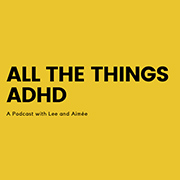 All the Things ADHD podcast
All the Things ADHD podcast
The free All the Things ADHD podcast is helpful and fun, even for folks who aren’t professional women and/or don’t have ADHD — lots of the approaches and tools discussed are broadly useful! This podcast is “a resource for professional women who have been diagnosed later in life with ADHD (like [the hosts]) and the people who love them and are seeking to better understand them. ... The hosts, Lee Skallerup Bessette and Aimée Morrison, both have Ph.D.s, are both considered professionally successful, and yet embraced their diagnoses that came in their 40s. The podcast will address the stereotypes, stigmas, societal pressures, and systemic forces that shape the narrative around ADHD, as well as practical tips and advice for getting along with ADHD.”
Next, from Erin Pappas, Librarian for the Humanities:
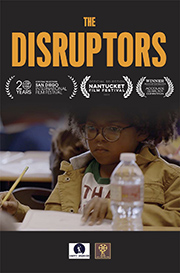 “The Disruptors”
“The Disruptors”
The 2022 film “The Disruptors” takes a closer look at both historical figures who exhibited symptoms associated with ADHD, such as Thomas Edison, Albert Einstein, and Andrew Carnegie, but also with well-known figures from the worlds of entertainment, sports, and business who have ADHD. These individuals include Paris Hilton, Scott Kelly (a former NASA astronaut), Howie Mandel, David Neeleman (founder of JetBlue and Breeze Airways), Michelle Carter (a three-time Olympian), and NFL legend Terry Bradshaw. Through their personal stories, the film illustrates how these real-life role models conquered challenges related to ADHD on their path to remarkable success.
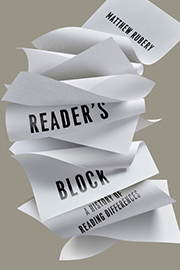 “Reader’s Block: A History of Reading Differences”
“Reader’s Block: A History of Reading Differences”
In “Reader’s Block: A History of Reading Differences,” Matthew Rubery explores the diverse meanings of “reading.” He shares stories of individuals with conditions like dyslexia, hyperlexia, and synesthesia, showing how neurodiversity impacts reading. Rubery challenges our conventional understanding of reading, presenting it as a spectrum of activities rather than a single definition. The book draws on various sources, highlighting how cognitive differences shape reading experiences. You can read it in any way you prefer, just as there’s no one right way to read.
And finally, from Leigh Rockey, Video Collections Librarian:
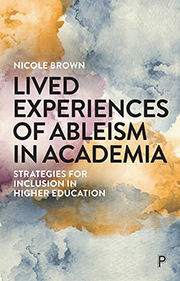 “Lived Experiences of Ableism in Academia: Strategies for Inclusion in Higher Education”
“Lived Experiences of Ableism in Academia: Strategies for Inclusion in Higher Education”
While most of its writers live and work in the United Kingdon, the book “Lived Experiences of Ableism in Academia: Strategies for Inclusion in Higher Education” easily applies to academics of all nations. Institutions of higher learning can be cold, demanding, and unforgiving drivers of achievement. Failure to thrive is often seen as a personal, individual deficiency of talent, intelligence, or stamina — and academia is rarely considerate of people who are not typically able-bodied and able-minded. The engaging (and mostly free of academic jargon) essays in this book depict and then offer ways to solve the problems faced by those in academia who have disabilities, from visual impairment to the autism spectrum to dyslexia to depression. Ultimately, disabled, ill, and/or neurodivergent students, faculty, and staff embody the real narrative of accomplishment and excellence to which all of higher education aspires.
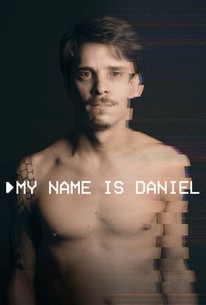 “My Name is Daniel”
“My Name is Daniel”
Through home movies and personal revelations, the Brazilian filmmaker Daniel Goncalves invites us into his life and his disability in “My Name Is Daniel.” The film revolves around diagnosing Goncalves while depicting his home, family, youthful longings, and present-day situation. Goncalves lets scenes play out so the viewer can appreciate the patience and persistence required to live with his as-yet-unlabeled physical differences. Watching him make eggs using his match-lit stove becomes uncomfortable until Goncalves himself makes us laugh with one word. Even with his difficulties on display, he is exactly like everybody (disabled or otherwise) watching him. As a working filmmaker, he turns his life into art, and the viewer appreciates this gift.
